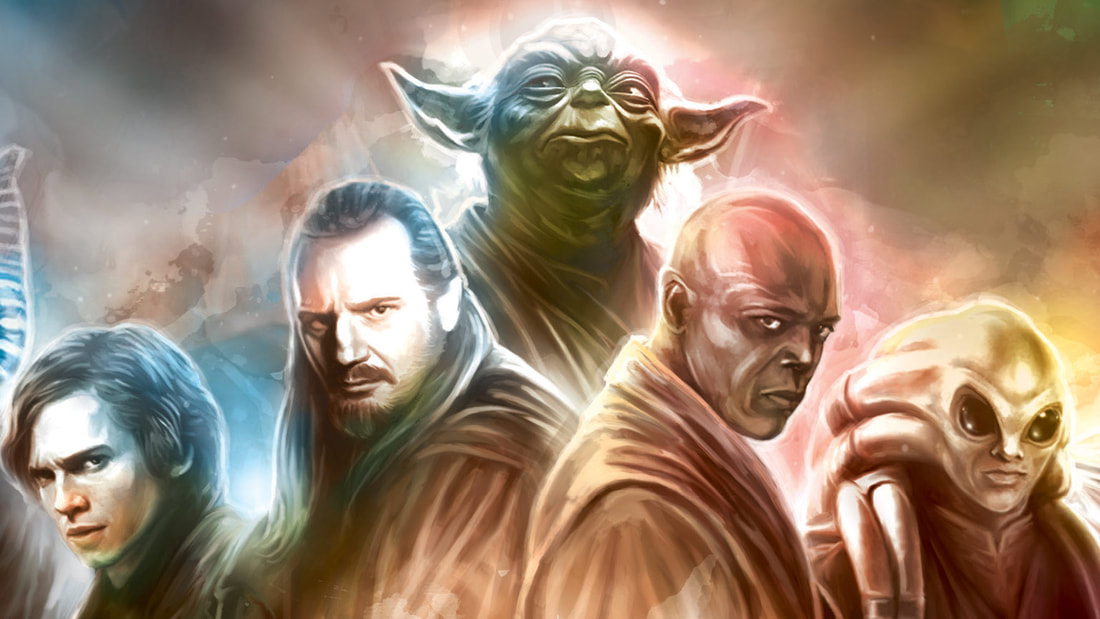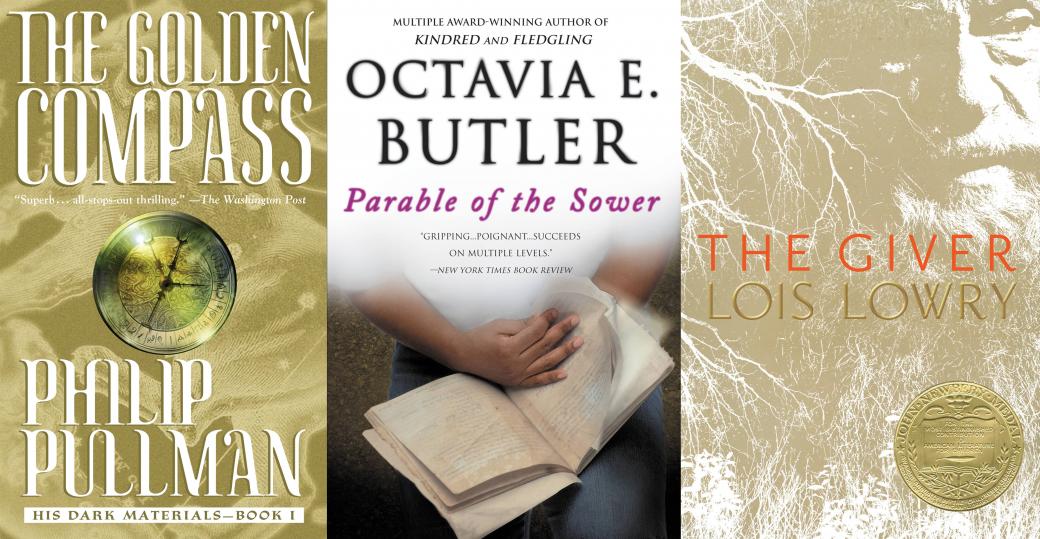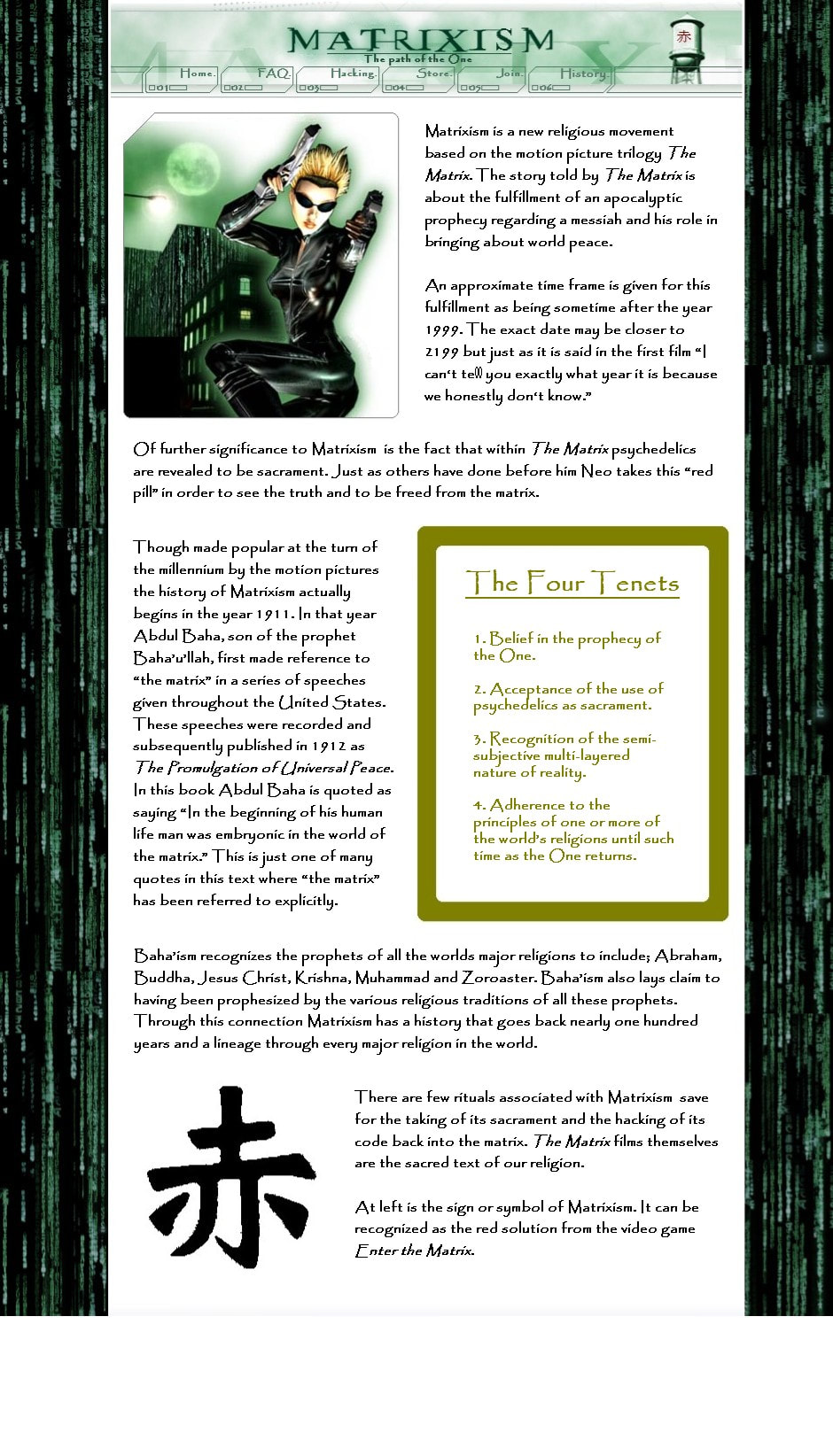- Home
- Process Worldview
- Community
- Art and Music
- Whitehead and Process Thinking
- Podcasts
- Spirituality
- Ecological Civilization
- Education
- Contact
- Social Justice
- Science
- Animals
- Sacred Poems
- Whitehead Videos
- Index of All Titles
- Practicing Process Thought
- Process Spirituality: A Spiritual Alphabet
- Recent Posts
I thought I had outgrown religion, but my need for revelation was answered in the literature of speculation, fantasy and science fiction.
I thought I had outgrown religion, but the truth is that my need for revelation was answered in the literature of speculation, fantasy and science fiction, the genres that test unlikely propositions in stories.Those stories gave me new myths. While the passion of Jesus, the trials of Job, and the tolerance of the Golden Rule only made me think about the hypocrisy of conservative Christians, I felt the sacrifice of Frodo in The Lord of the Rings, the suffering of Winston Smith in 1984, and the respect for difference in Star Trek’s Prime Directive. I read Isaac Asimov and Zenna Henderson and knew that all people should live as equals, sharing wealth and knowledge. I read J.R.R. Tolkien and Ursula K. Le Guin and knew I should strive to do good, no matter the obstacles.
-- Will Shetterly, How Science Fiction and Fantasy Shaped my Spiritual Journey, UU World, March 2005
-- Will Shetterly, How Science Fiction and Fantasy Shaped my Spiritual Journey, UU World, March 2005
The Quest: Finding God in Imagination
Kathleen Jacobson
All that you touch
You Change.
All that you Change
Changes you.
The only lasting truth
Is Change.
God
Is Change.
This sounds like poetry based on the process philosophy of Alfred North Whitehead. It feels beautiful and true.
As wind,
As water,
As fire,
As life,
God
Is both creative and destructive,
Demanding and yielding,
Sculptor and clay.
God is Infinite Potential:
God is Change.
It gets deeper as it goes on and confronts the destructive forces that humans have wrestled with through the ages.
God is Change.
Beware:
God exists to shape
And to be shaped.
Why is the universe?
To shape God.
Why is God?
To shape the universe.
But these are not quotes from Process and Reality nor are they poetry penned by a Whiteheadian. Rather, these passages are from “The Philosophy of Earthseed” which is a religion from the book Parable of the Sower, a futuristic, dystopian, science-fiction novel by Octavia E. Butler.
It has grown into a real religion that is followed and practiced: God is Change.
Science fiction offers us a chance to use our imagination to connect with spirit in new ways. Imagination is one of the words found in the spiritual alphabet that was designed by Frederic and Mary Ann Brussat of Spirituality and Practice.: Give imagination free rein in your life. Explore its images and ponder its meaning-making moments, and it will always present you with something new to be seen, felt, or made known. Imagination keeps your mind and body energized and sharp. The ability to imagine things pervades our entire existence. It influences everything we do, think about and create. It leads to elaborate theories, dreams and inventions in any profession from the realms of academia to engineering and the arts. Alfred North Whitehead understood the importance of imagination,
The true method of discovery is like the flight of an aeroplane. It starts from the ground of particular observation; it makes a flight in the thin air of imaginative generalization; and it again lands for renewed observation rendered acute by rational interpretation. (Alfred North Whitehead, Process and Reality)
Imagination allows us to escape, if only for a brief moment, from life as we know it. It gives us the opportunity to explore new worlds, learn new things about our world as well as ourselves, and puts us in touch with that childlike part of ourselves. Imagination is the ability to produce and simulate novel objects, peoples and ideas in the mind without any immediate input of the senses. The active types of imagination include integration of modifiers, and mental rotation. Imagined images, both novel and recalled, are seen with the "mind's eye".
Space: the final frontier. These are the voyages of the starship Enterprise. Its continuing mission: to explore strange new worlds. To seek out new life and new civilizations. To boldly
go where no one has gone before! -Star Trek the Next Generation
Who hasn’t heard these words? I love this version from The Next Generation series better than the original version. The are a few differences between the two. It is easy to spot the gender-neutral update in this version. But I like that the mission is not a five-year mission anymore. It is ongoing. This could be describing the human story. We are on a continuing mission. We are boldly going where no one has gone before. We are constantly seeking and discovering. We are in Process. We are Questing. I like the word “Quest” and that it is used in the spiritual alphabet Questing is described on their website in this way: Savor questions and thrill to the quest. See your life as a journey that quickens your faith and deepens your soul.
What is it that causes us to search for meaning? Would you consider the wisdom from Science fiction ?
The stories from Star Trek can teach us similar themes to those in Process Philosophy. We learn about the value of lifeforms beyond humans in Star Trek IV. Matrixism or The Path of the One has developed into a religion inspired by the motion picture trilogy The Matrix. This movie from the “cyberpunk” genre, has inspired this religion of over over sixteen hundred members and incorporates many literary, philosophical, religious, and mythological references. This includes wisdom and philosophy from Christianity, Buddhism, Hinduism, Indigenous religions, and Gnostic theology.
The Four Tenets of Matrixism (as seen in the image below) are:
- belief in a messianic prophecy
- use of psychedelic drugs as sacrament
- a perception of reality as multi-layered and semi-subjective
- adherence to the principles of at least one of the world's major religions
The epic space-opera Star War has a religious following but more than that, Jediism has become an actual religion.
Jedi believe in the Force, a specific energy that flows through all things and binds the universe together. They also believe that humans can tap into or shape the Force to unlock greater potential. Many Jedi also view themselves as guardians of truth, knowledge, and justice, and actively promote such ideals. This sounds so close to what I believe in my spirituality, that I wonder if I might be a jedi too? I’m not ready to buy my light saber just yet but I don’t discount this religion either. It engages imagination and a reverence for life.
Science Fiction stories can hold meaning and wise teachings and evolve into a form of religion. These are our modern myths. Our holy books are still being written. God isn’t an idea from long ago. God is alive and still speaking. God is on a continuing mission to boldly go where no one has gone before. As long as we are in process and questing, we can open new doors to feeling and connection to the divine. It just takes creativity and imagination.
Also by Kathleen Jacobson
God as Deep Imagination
by Jay McDaniel
Science fiction enables us to experience parallel universes in our imagination, even when the parallel universes of traditional religion have lost their appeal. Reading and writing science fiction can also be a spiritual practice in its own right, as Kathleen Jacobson makes clear in the essay above. I would like to add that, in certain contexts, the reading and writing of science fiction can be a way of participating in the very life God, especially if the reading and practice lends itself to loving relations among people and to treating all living beings with respect and care.
In process philosophy there is indeed a Deep Imagination in whose consciousness the universe unfolds. It is both (1) an act of beholding all that is potential in this universe or any other universe, actual or simply possible; and (2) an act of yearning for the satisfaction of each and all, in any actual universe. Both are part of what process philosophers call the primordial nature of God.
The Deep Imagination is also a loving Companion to all actual worlds, feeling the feelings of each and every actuality with tender care. Here "worlds" refers to any actual world at all, on this planet or on other planets, and in any dimension of existence, three-dimensional or otherwise. Process philosophers speak of this loving Companion to all actual worlds as the consequent nature of God. Its defining feature of which is Love. Lest we think in overly singular terms, however, we best recognize that many universes, both actual and possible, form the body of the Deep Imagination, which means that the Imagination is also a multiplicity. These many worlds are Love's body.
Of course, there are other ways to speak of this Deep Imagination besides Deep Imagination. In Adventures of Ideas Whitehead speaks of it as the Eros of the universe and also as the Harmony of Harmonies. In Process and Reality he speaks of it as God, adding that God is immanent within each and every creature anywhere in the universe as an inwardly felt lure toward healing and wholeness, creativity and wonder: toward a realization of whatever form of fulfillment is available to it.
A leading process theologian, John Cobb, speculates that as we experience this inwardly felt lure in our own lives, we share in the emotional yearnings of the Deep Imagination. In the technical language of process philosophy, we share in God's subjective forms or emotions, seeking well-being for ourselves and others along with God. Not only does God as Companion feel our feelings; we feel God's feelings.
Of course we do not always listen to or follow this inwardly felt lure. There are other lures in our lives, too: lures that lead us to harm others and ourselves. Tragedy is real both as missed potential and actual harm. Not all in our lives or in the world is divinely ordained. Much is divinely lamented: violence, injustice, terror, greed, hatred. But there remains the lure of the Eros of the universe as well, as living current we can follow and help incarnate in the world, each in our way. It is if there is a force for healing and wholeness at work in the world, which can both guide us but which also requires our cooperation for its fulfillment.
One way that we cooperate with the force is through acts of love, helping other people, other animals and the earth: loving our neighbors and also ourselves. We can do this in our one-on-one relationships with friends and family and neighbors and co-workers. And we can do this by helping build local communities that are good for people, animals and the earth: just, sustainable, and joyful. Science fiction can help liberate our imaginations so that we can help build these communities. May the force be with you.
In process philosophy there is indeed a Deep Imagination in whose consciousness the universe unfolds. It is both (1) an act of beholding all that is potential in this universe or any other universe, actual or simply possible; and (2) an act of yearning for the satisfaction of each and all, in any actual universe. Both are part of what process philosophers call the primordial nature of God.
The Deep Imagination is also a loving Companion to all actual worlds, feeling the feelings of each and every actuality with tender care. Here "worlds" refers to any actual world at all, on this planet or on other planets, and in any dimension of existence, three-dimensional or otherwise. Process philosophers speak of this loving Companion to all actual worlds as the consequent nature of God. Its defining feature of which is Love. Lest we think in overly singular terms, however, we best recognize that many universes, both actual and possible, form the body of the Deep Imagination, which means that the Imagination is also a multiplicity. These many worlds are Love's body.
Of course, there are other ways to speak of this Deep Imagination besides Deep Imagination. In Adventures of Ideas Whitehead speaks of it as the Eros of the universe and also as the Harmony of Harmonies. In Process and Reality he speaks of it as God, adding that God is immanent within each and every creature anywhere in the universe as an inwardly felt lure toward healing and wholeness, creativity and wonder: toward a realization of whatever form of fulfillment is available to it.
A leading process theologian, John Cobb, speculates that as we experience this inwardly felt lure in our own lives, we share in the emotional yearnings of the Deep Imagination. In the technical language of process philosophy, we share in God's subjective forms or emotions, seeking well-being for ourselves and others along with God. Not only does God as Companion feel our feelings; we feel God's feelings.
Of course we do not always listen to or follow this inwardly felt lure. There are other lures in our lives, too: lures that lead us to harm others and ourselves. Tragedy is real both as missed potential and actual harm. Not all in our lives or in the world is divinely ordained. Much is divinely lamented: violence, injustice, terror, greed, hatred. But there remains the lure of the Eros of the universe as well, as living current we can follow and help incarnate in the world, each in our way. It is if there is a force for healing and wholeness at work in the world, which can both guide us but which also requires our cooperation for its fulfillment.
One way that we cooperate with the force is through acts of love, helping other people, other animals and the earth: loving our neighbors and also ourselves. We can do this in our one-on-one relationships with friends and family and neighbors and co-workers. And we can do this by helping build local communities that are good for people, animals and the earth: just, sustainable, and joyful. Science fiction can help liberate our imaginations so that we can help build these communities. May the force be with you.


